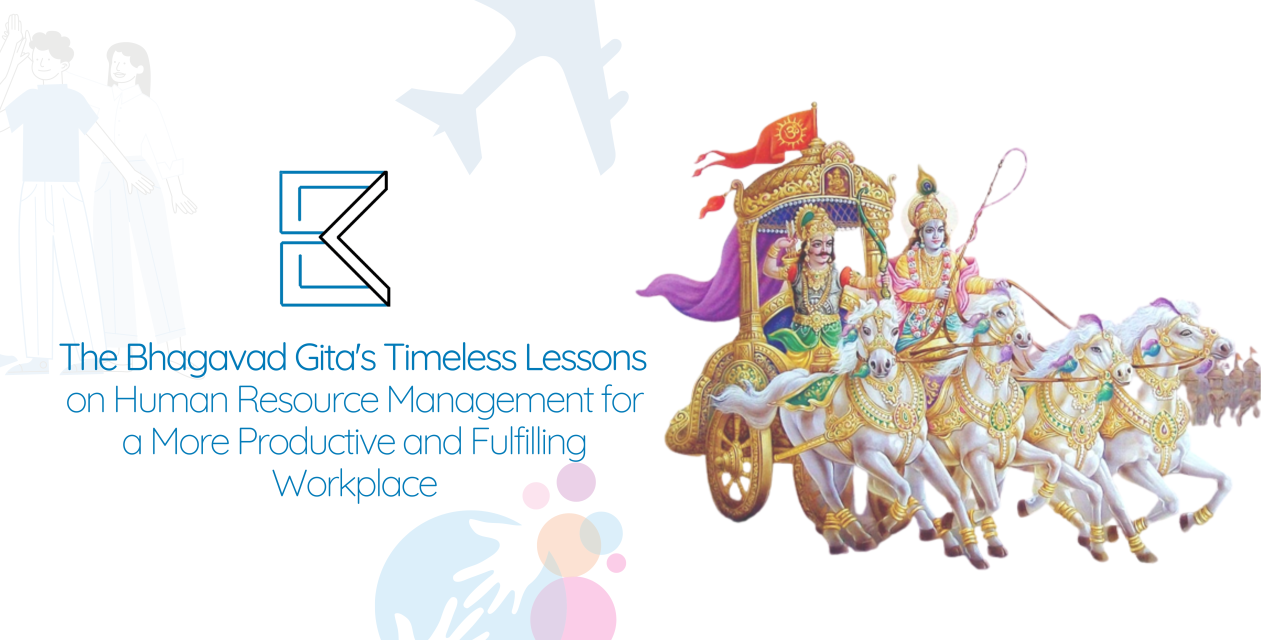The Bhagavad Gita's Timeless Lessons on Human Resource Management for a More Productive and Fulfilling Workplace
The Bhagavad Gita is an ancient Indian text that is considered one of the most significant spiritual scriptures in the world. It is also a valuable source of wisdom on human resource management that can be applied in modern-day organizations. The Gita teaches us several principles of leadership, motivation, communication, and teamwork that can help HR managers build a healthy and productive work environment.
Here are some key principles from the Bhagavad Gita that HR managers can apply to human resource management:
Lead by example
The Gita teaches that a leader should set an example for their followers. In other words, if HR managers want their employees to be productive, positive, and committed, they should display these qualities themselves. Leaders who are proactive, self-motivated, and focused on their goals can inspire their teams to do the same.
Motivate through purpose
The Bhagavad Gita emphasizes the importance of finding one's purpose in life and working towards it with dedication and focus. This principle can be applied to HR management by helping employees connect their work to a larger purpose. When employees understand how their work contributes to the overall goals of the organization, they are more likely to feel motivated and engaged.
Foster teamwork
The Gita encourages teamwork and collaboration. It teaches that a leader should encourage their followers to work together and support each other to achieve a common goal. Similarly, HR managers should foster a culture of teamwork and collaboration within their organization. They should encourage employees to work together, share their knowledge and expertise, and support each other to achieve shared goals.
Develop emotional intelligence
The Gita emphasizes the importance of emotional intelligence or understanding one's emotions and those of others. This is essential for effective communication and decision-making. HR managers should develop their emotional intelligence to better understand their employees' needs and motivations. They should also encourage employees to develop their emotional intelligence, which can improve communication, teamwork, and overall performance.
Encourage lifelong learning
The Gita teaches that learning is a lifelong process, and it is essential to develop one's knowledge and skills continuously. HR managers should encourage employees to engage in ongoing learning and development. They should provide opportunities for employees to attend training programs, workshops, and other learning experiences that can help them grow professionally.
In conclusion, the Bhagavad Gita offers valuable lessons for HR managers to apply in their work. Its teachings on leadership, motivation, teamwork, emotional intelligence and lifelong learning can help build a culture of excellence and achieve organizational goals. By applying these principles, HR managers can create a workplace where employees feel valued, supported, and motivated to perform at their best.



